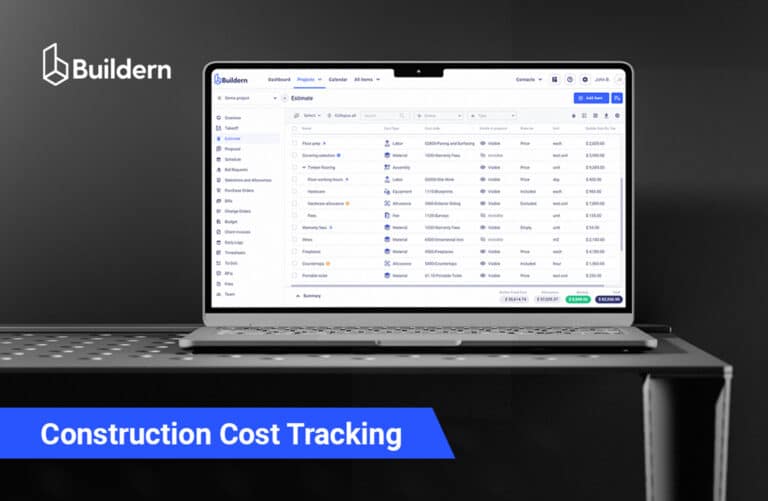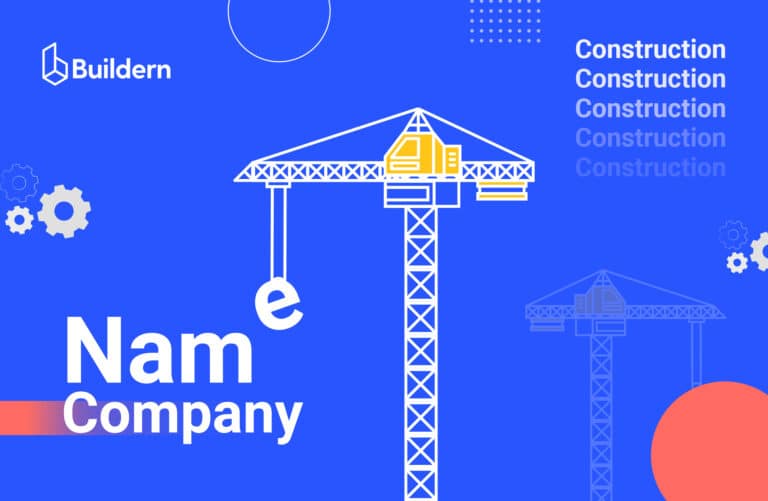Construction Insurance: Types, Coverages & Key Insights
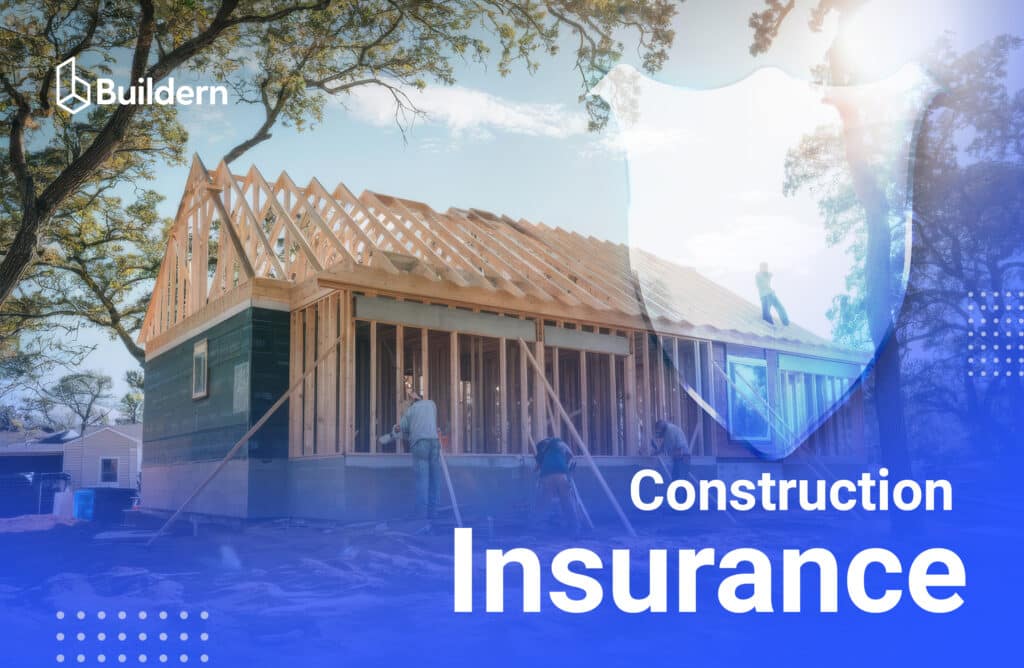
In the construction industry, risks are an inevitable part of the process. A project may face all types of misfortunes, from on-site accidents to unforeseen delays or equipment failure. In these scenarios, insurance in construction provides a protective shield for the financial stability of a business involved in construction. Being aware of the various types of insurance, the risks they cover and the benefits they provide can help contractors, project owners, and workers effectively manage such potential hazards.
Construction insurance has various policies that protect against different threats faced on construction sites. Yet, despite the fact that types of coverage may vary depending on the nature of the construction project and also according to particular requirements, the aim that general insurance policies tend towards remains the same: to reduce the financial impact of risks.
Table of Contents
- What is Construction Insurance?
- Why Is Construction Insurance Important?
- 9 Types of Construction Insurance You Need To Know
- How to Manage Company and Subcontractor Insurance
- Local Construction Insurance Requirements in Different Countries
- Conclusion

What is Construction Insurance?
Construction insurance refers to a set of insurance policies designed to protect construction businesses from potential risks. From property damage to third-party liability claims, construction insurance provides a financial safety net for contractors, subcontractors, and project owners. This kind of insurance is specially for the high-risk nature of construction work, covering accidents, property damage, theft, and legal liabilities that might arise during the course of a project.
Construction insurance is not a one-size-fits-all solution. Different elements of the work require different types of coverage, and this varies depending on the size and intricacy of the project. A large commercial construction project, for example, would call for wider coverage than a simple residential renovation. Whichever the size, the appropriate type of insurance is necessary to keep the business legal and finance-safe.
Why Is Construction Insurance Important?
Construction insurance is an essential form of security against sudden financial losses arising from everyday risks in the construction trade. There are many risks involved in every construction project, such as accidents, bad weather, and equipment failure. Without insurance, even the smallest problems can quickly escalate into major financial issues.
- For instance, in case any equipment breaks down or an accident happens, the repair costs or legal claims instantly start piling up. Construction insurance covers these risks so that projects can keep going without having to suffer major financial setbacks or delays. This protection is crucial in keeping projects on track and avoiding financial strain.
What Risks Does Construction Insurance Cover?
Construction insurance can provide coverage for the following risks:
- Property Damage: Covers repair or replacement of damaged equipment, materials, or buildings.
- Accidents: Includes injuries to workers or any third party at the construction site.
- Delays: Covers losses arising from delays in project completion due to insured events.
- Theft and Vandalism: Securing materials and equipment from theft or damage due to vandalism.
What Benefits Does Construction Insurance Give?
The main benefits of construction insurance include:
- Financial Protection: Safeguards against the high costs of damages, liability claims, and legal fees.
- Risk Management: Helps mitigate the financial impact of unforeseen accidents or disruptions.
- Peace of Mind: Ensures that project owners and contractors can focus on completing the job without the constant fear of financial losses.
- Compliance: Many construction projects require insurance by law, ensuring that contractors remain in compliance with local regulations.
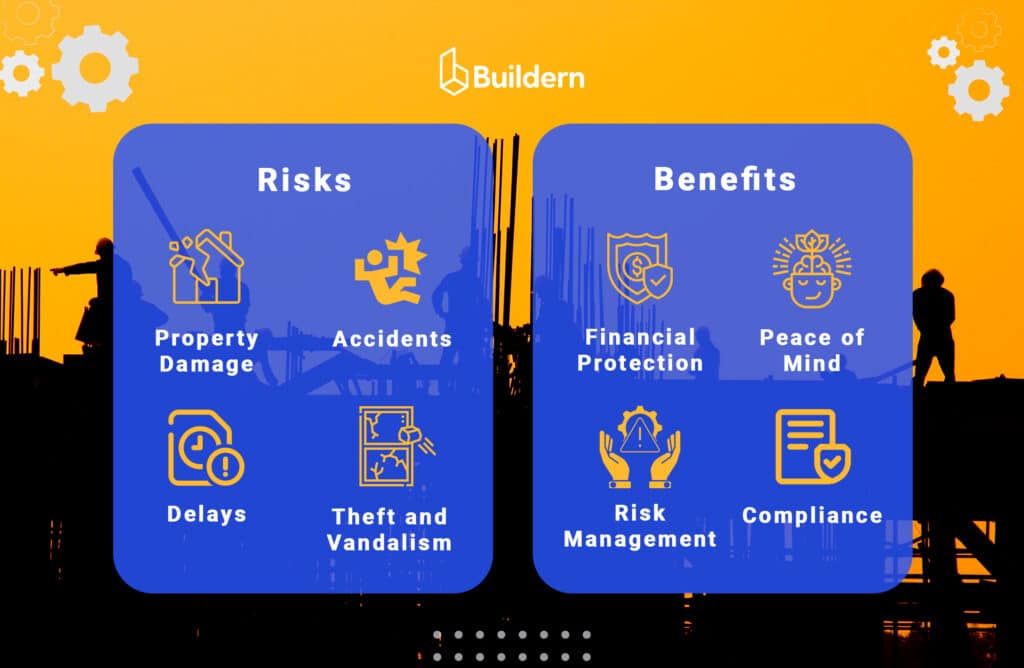
9 Types of Construction Insurance You Need to Know
Understanding the variety of available insurance is critical in putting measures in place that make sure the construction business is adequately protected. The following 9 types of construction insurance will be useful for every contractor and project owner:
General Liability Insurance
General liability insurance covers third-party claims arising due to bodily injury or damage to property at a construction site. This type of insurance is one of the most common and essential forms of coverage, as it saves a business from the financial burden of accidents that may affect workers, visitors, or the general public.
General liability insurance, for example, will cover the medical costs, legal fees, and repair costs in case of a visitor getting injured on the construction site or property being damaged during the course of work. This will help to avoid possibly high legal claim costs, keeping the business safe from any financial blow.
Workers’ Compensation Insurance
This is the kind of insurance that is compelled by many areas to cover medical care, rehabilitation, and lost wages when workers are injured on the job. Workers’ compensation insurance also helps protect businesses from lawsuits related to workplace injuries. Insurance in case of injury on the job will cover treatment and compensation for the employee, as well as protect the business from potential legal action.
Furthermore, workers’ compensation providing coverage for employees’ medical bills and loss of income, offers employees and employers a safer, more secure environment that builds trust and stability in the workforce.
Risk Insurance
Builder’s risk insurance insures against property damage to buildings while they are still under construction, including fire, weather, or vandalism. It is essential during the building phase of the property, as at this point, it is most vulnerable to damage.
The risks for buildings under construction, without the protective barriers and security measures of completed structures, are much greater in case of unexpected weather events, accidents, or criminal activities. With builder’s risk insurance, any damage that might occur during this period will be covered, which may prevent costly delays and repairs and allow the project to continue without significant financial disruption.
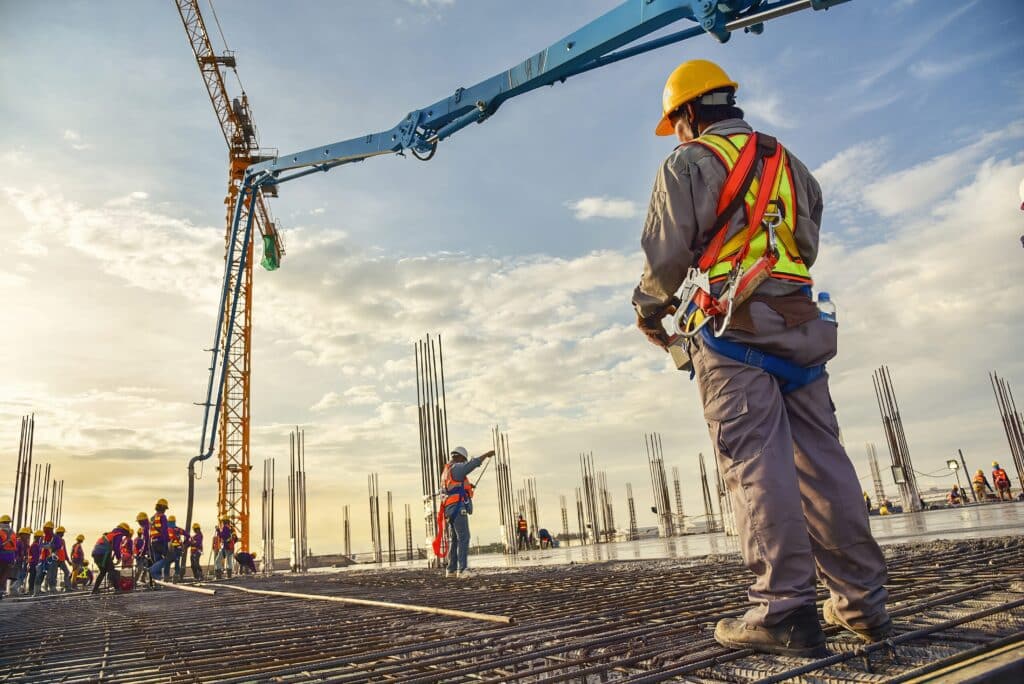
Commercial Auto Insurance
For those businesses using vehicles to transport materials, workers, or equipment, commercial auto insurance covers accidents, theft, or damage to the vehicles used in the course of business. Such insurance is very important in covering a fleet of vehicles usually relied upon in construction projects. Most construction companies use trucks, vans, and other forms of vehicles to move heavy equipment or deliver materials to and from job sites. As such, any damage or accident results in expensive repairs, delays, and disruption.
Commercial auto insurance helps ensure these risks are covered, thus enabling a business to carry on operations smoothly without having to bear the full financial burden of such incidents related to vehicles.
Equipment Insurance
Building and construction sites involve much heavy machinery and special equipment. The machinery might need repair or replacement following the occurrence of an accident, theft, or general wear and tear, which equipment insurance can take care of. Because one single construction equipment is so costly, even slight damage or misplacement leads to very much financial stress.
It helps businesses protect themselves in case of an accident, as insurance covers repair expenses or equipment replacement costs for the continuity of the project without major delays. Be it an excavator, crane, or any other machinery, equipment insurance reduces the financial risk associated with maintaining and operating the construction equipment that helps a business stay on schedule and within budget.

Professional Liability Insurance
Also known as errors and omissions insurance, professional liability insurance protects contractors or consultants against claims of negligence, mistakes, or failure to meet the expected standards of performance in their services. This is an important insurance for businesses offering skilled advice or special services, such as architects, engineers, or design consultants.
Ultimately, professional liability insurance would cover legal fees, settlement costs, and damages if a contractor or consultant made an error in judgment that caused a client to suffer financial loss. This insurance protects a business from the risk of professional mistakes or oversights, allowing it to continue operating with its reputation and bottom line intact while providing expertise.
Umbrella Insurance
Umbrella insurance is a broadened coverage of liability extended by other forms of insurance policies, adding an additional layer of protection in case such limits are exceeded. This type of insurance is very important for the business, as it ensures that they remain covered during catastrophic incidents that result in claims exceeding the standard coverage limits.
For instance, if there is a serious bodily injury or property damage due to a construction site accident, an umbrella insurance policy would be very helpful if the limits of general liability or workers’ compensation policies are met. It would help businesses avoid being burdened by surprise claims of high value and keep protection against critical risks uninterrupted.
Contractor’s Pollution Liability Insurance
This insurance covers claims arising from environmental damage, such as pollution or hazardous material spills that may occur during construction. It is highly recommended for projects involving hazardous materials, like asbestos or chemicals, or when the construction is to be done in environmentally sensitive areas. Contractor’s pollution liability insurance pays for cleanup costs, legal fees, and any damages arising due to environmental irregularity.
It covers them against these risks and allows construction companies to control the potential environmental impact of their projects and avoid costly penalties or lawsuits.
Surety Bonds
Although not a type of insurance, surety bonds are commonly required for construction contracts. A surety bond ensures that the contractor will perform according to the contract. If the contractor does not complete the project or meet the specifications, the bond pays financial damages to the project owner.
In the light of this, it ensures that the owner is protected against potential losses caused by contractor defaults, such as delays, substandard work, or failure to meet deadlines. Surety bonds help establish trust between contractors and project owners, offering additional security that the contract will be properly executed.
How to Manage Company and Subcontractor Insurance
Construction companies often need to manage their own insurance alongside subcontractor insurance, making a clear tracking system to avoid disruptions.
With a centralized approach in Buildern, companies can store their insurance details alongside subcontractor licenses, including Reminder for expiration dates. It keeps everything organized and at the fingertips, making oversight less likely.
Tracking subcontractor insurance is particularly important because expired licenses will lead to compliance issues, delays in projects, or unexpected liabilities. Automated notifications of upcoming expirations help address potential problems before they arise, keeping projects on schedule and in compliance with regulations.
Keep your projects on track and stay organized with Buildern’s automated insurance tracking.
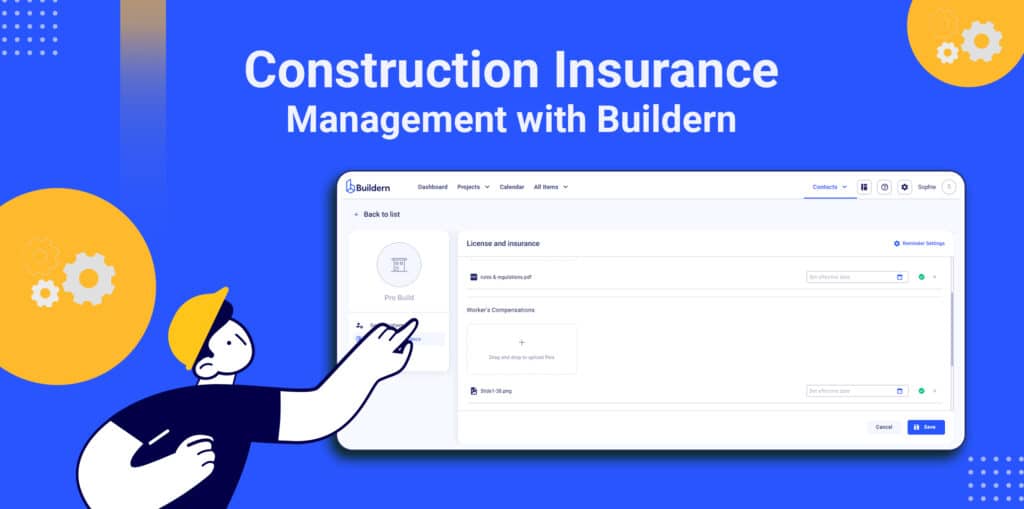
Local Construction Insurance Requirements in Different Countries
Construction insurance requirements may vary significantly by region, with variations in the type of coverage that is mandatory, including workers’ compensation, public liability, and home warranty insurance. This depends on the local regulations, the size of the projects, and the nature of the work: residential, commercial, or industrial.
💡 U.S. Construction Insurance Requirements by States
1. California
- Workers’ Compensation Insurance: All employers must carry it, regardless of how many employees they have. Even if the business is a sole proprietorship, if there are employees, this insurance is required.
- General Liability Insurance: Not required by law, but often necessary to secure contractor licenses and contracts.
- Builder’s Risk Insurance: Typically required for larger projects or developments.
- Commercial Auto Insurance: If using vehicles for construction, it’s required.
2. Texas
- Workers’ Compensation Insurance: Not technically required but highly recommended for contractors. If employers opt not to have this coverage, they lose some legal protection in the case of workplace injury.
- General Liability Insurance: It is not required by law, but this is usually a requirement with clients and also for contract purposes.
- Builder’s Risk Insurance: It is not required by law, but it is often needed on larger projects.
- Commercial Auto Insurance: Required for vehicles used for construction operations.
3. New York
- Workers’ Compensation Insurance: Required for all employers who have employees.
- Disability Benefits Insurance: Required in addition to workers’ compensation to cover non-work-related injuries.
- General Liability Insurance: Required for contractor licensing.
- Builder’s Risk Insurance: Often required for large-scale or high-value projects.
- Commercial Auto Insurance: Required for vehicles used in the construction business.
4. Florida
- Workers’ Compensation Insurance: For any business with more than four employees in the construction industry.
- General Liability Insurance: Often required by local authorities for licensing. It may also be required by clients or project contracts.
- Builder’s Risk Insurance: Not mandatory but usually required for large projects.
- Commercial Auto Insurance: For any vehicles used for construction purposes.
5. Illinois
- Workers’ Compensation Insurance: For any business with employees in the construction industry.
- General Liability Insurance: Most municipalities require it for contracting work.
- Builder’s Risk Insurance: Required in most cases, especially on large projects.
- Commercial Auto Insurance: If a business has company vehicles.
6. Ohio
- Workers’ Compensation Insurance: All construction workers are required to have this coverage. This even includes small businesses that employ only one employee.
- General Liability Insurance: Not mandated by law but often requested by clients and licensing requirements in some municipalities.
- Builder’s Risk Insurance: Not mandated by law, but often contracted for large construction projects.
- Commercial Auto Insurance: If the business uses vehicles for business purposes.
7. Georgia
- Workers’ Compensation Insurance: If the business has more than three employees in the construction industry.
- General Liability Insurance: Not required by state statute but often required by clients and contract requirements for projects.
- Builder’s Risk Insurance: Generally is required for residential projects when the value of the project exceeds $10,000 and more often for larger commercial projects.
- Commercial Auto Insurance: Any vehicle used in construction must be covered.
8. Pennsylvania
- Workers’ Compensation Insurance: Required for construction employers of one or more employees.
- General Liability Insurance: Not required by law, but is a requirement for contractor licensing and client contracts.
- Builder’s Risk Insurance: Often required for larger construction projects, especially for commercial developments.
- Commercial Auto Insurance: If vehicles are used for construction
9. Michigan
- Workers’ Compensation Insurance: Required for all businesses with employees in the construction industry.
- General Liability Insurance: Many municipalities require this for contractors to work in their jurisdictions.
- Builder’s Risk Insurance: Frequently, large projects or their lenders require this insurance.
- Commercial Auto Insurance: If business operations include using a vehicle, this is required.
10. Washington
- Workers’ Compensation Insurance: All employers must carry it. The L&I in Washington does provide workers compensation for most employees.
- General Liability Insurance: While not necessarily required legally, most clients and project contracts require it.
- Builder’s Risk Insurance: Often required for larger residential and commercial projects.
- Commercial Auto Insurance: Required for construction vehicles used on the job.
11. Arizona
- Workers’ Compensation Insurance: Required for all businesses with one or more employees in construction.
- General Liability Insurance: Not required by law but necessary for contractor licensing and large contracts.
- Builder’s Risk Insurance: Not legally required, but recommended for construction projects.
- Commercial Auto Insurance: Required for vehicles used for construction work.
In the rest of the states the requirements can vary, give or take some specific regulations. For more information you can visit content.naic.org.

💡 Australian Construction Insurance Requirements by States
1. New South Wales (NSW)
- Workers’ Compensation Insurance: This is compulsory for any employer who employs workers in construction.
- Public Liability Insurance: Not compulsory but highly recommended; clients or contractors often make it a requirement.
- Home Warranty Insurance: Applies to residential projects above $20,000. This covers the homeowners in case of builder insolvency, death, or disappearance before finishing the work.
- Builder’s Risk Insurance: This insurance is not required by law, but it is highly advisable on high-value or large-scale construction projects.
2. Victoria (VIC)
- Workers’ Compensation Insurance: Required for all employers in the construction industry.
- Public Liability Insurance: Not required by law but highly recommended and often required by clients and contractors in project contracts.
- Home Warranty Insurance: Required for residential projects over $16,000 in value.
- Builder’s Risk Insurance: Not legally required but typically included in contracts for large or complex construction projects.
3. Queensland (QLD)
- QBCC: A compulsory insurance scheme in QLD. It covers the homeowners against financial loss due to defects, incomplete work, or the insolvency, death, or disappearance of a licensed contractor during residential building work.
- QLeave: Operating in QLD, it offers long service leave benefits to workers for project-based or short-term employment.
- Workers’ Compensation Insurance: Required for all employers in the construction industry.
- Public Liability Insurance: Not legally required but often required in the contract by clients or local authorities.
- Home Warranty Insurance: For residential projects with a value over $12,000.
- Builder’s Risk Insurance: Not required by law but is usually recommended and included in the contract for larger projects.
4. Western Australia (WA)
- Workers’ Compensation Insurance: All construction employers are required to have it if they have employees.
- Public Liability Insurance: While not compelled by law, it’s highly recommended and often contractual between the client and builder, or in the actual building project contract.
- Home Warranty Insurance: Generally not required in residential work, but may be for substantial renovations.
- Builder’s Risk Insurance: While not legally required, this type of insurance could be quite necessary for large, expensive projects or those high-risk projects.
5. South Australia (SA)
- Workers’ Compensation Insurance: Obligated to all employers in construction industries.
- Public Liability Insurance: This is not legal but usually required by clients/contractors by the terms of the project agreement or contract.
- Home Warranty Insurance: Residential projects above $12,000.
- Builder’s Risk Insurance: Highly recommended for projects of high value or high risk, although not by law.
6. Australian Capital Territory (ACT)
- Workers’ Compensation Insurance: Required for all employers with employees, regulated under ACT’s workers’ compensation laws.
- Public Liability Insurance: Not legally necessary but highly recommended and often required by contracts to cover against third-party injury or property damage.
- Home Warranty Insurance: Required for residential projects over $12,000, covering defects and structural issues if the builder cannot complete the project.
- Builder’s Risk Insurance: Not compulsory but highly recommended in cases of projects with high risk or great value.
7. Northern Territory (NT)
- Workers’ Compensation Insurance: By law, all construction employers that employ employees are required under NT’s workers’ compensation scheme.
- Public Liability Insurance: Legally not required, yet most clients and contractors do require cover for agreements to be made.
- Home Warranty Insurance: Generally not needed, but the protection for homeowners may be voluntarily extended in residential projects.
- Builders Risk Insurance: Available, but often required on large or high-risk projects.
8. Tasmania
- Workers’ Compensation Insurance: By Tasmanian law, Workers’ Compensation Insurance must be held by all employers in the construction industry.
- Public Liability Insurance: While it is not a legal necessity, it is highly advised and often a requirement for most projects.
- Home Warranty Insurance: A necessary insurance for defects and non-completion caused by insolvency or any other reason for residential works above $20,000.
- Builder’s Risk Insurance: not required by law but highly desirable for large-scale construction activities.
📚 Suggested Reading: Construction Terminology and Peculiarities of Australian Construction Industry.
💡 Canadian Construction Insurance Requirements by State
1. Alberta
- Workers’ Compensation Insurance: Compulsory to all employers in the construction field from WCB Alberta.
- Public Liability Insurance: It is not put down under law, though practically unavoidable on most projects. Generally, clients or contractors insist upon such cover.
- Home Warranty Insurance: Applied to new house construction. Builders ought to provide warranty coverage against defects and large issues.
- Builder’s Risk Insurance: Not at the force of law though it is highly recommended if big and/or expensive projects must be done.
2. British Columbia
- Workers’ Compensation Insurance: Statutory and applied to all employers in the construction industry; handled through WorkSafeBC.
- Public Liability Insurance: While not legally demanded, it is highly recommended and, quite often, required in most building contracts.
- Home Warranty Insurance: Required for new residential construction, protecting the homeowners against major defects for up to 10 years.
- Builder’s Risk Insurance: Not by law but highly recommended for large projects. Usually, the contracts include it for high-risk works.
3. Ontario
- Workers’ Compensation Insurance: This is compulsory for all construction employers and regulated under the Workplace Safety and Insurance Board.
- Public Liability Insurance: Although this is not a legal requirement, it is also in many instances required by the contractor or client through agreements.
- Home Warranty Insurance: Under the Ontario New Home Warranties Plan Act, this is required for new homes. Coverage typically involves defects in workmanship and structural issues for up to 7 years.
- Builder’s Risk Insurance: Not legally required, yet often included in contracts when it comes to large or commercial projects.
4. Quebec
- Workers’ Compensation Insurance: Required by all employers in construction under the CSST.
- Public Liability Insurance: Not legally required yet often stipulated in most contracts.
- Home Warranty Insurance: required for new residential homes: Builders must offer a 5-year warranty on structural defects.
- Builder’s Risk Insurance: Recommended for larger projects; not legally required.
5. Saskatchewan
- Workers’ Compensation Insurance: This is legally required for all construction employers; it is provided through the Workers’ Compensation Board (WCB) of Saskatchewan.
- Public Liability Insurance: While not legislatively required, it is often contractually required for projects and protects against third-party claims.
- Home Warranty Insurance: It is legally required for new homes under the New Home Warranty Program of Saskatchewan.
- Builder’s Risk Insurance: Not legislated but highly recommended for projects that are high-risk or high-value.
6. Manitoba
- Workers’ Compensation Insurance: For all employers who have employees, the Workers Compensation Board of Manitoba WCB requires and regulates.
- Public Liability Insurance: Not legislated but essential for nearly all contracts and third-party risks.
- Home Warranty Insurance: Not universally required but often sought for residential construction projects
- Builder’s Risk Insurance: Very highly recommended for large or commercial projects.
7. New Brunswick
- Workers’ Compensation Insurance: Construction employers are required, provided through WorkSafeNB.
- Public Liability Insurance: While not a legal requirement, it is often required by clients or in the agreement for the project.
- Home Warranty Insurance: Not required in the province, but can be, depending on the project, for further protection of the homeowner.
- Builder’s Risk Insurance: Not required but often part of the contract in large projects or renovations.
8. Nova Scotia
- Workers’ Compensation Insurance: This is a requirement for construction employers, directed under the Workers’ Compensation Board of Nova Scotia.
- Public Liability Insurance: Not legally needed, yet it is prevalent to control the risks arising from claims by third parties.
- Home Warranty Insurance: Done on new homes under the Nova Scotia Home Warranty Program.
- Builder’s Risk Insurance: It comes highly recommended when projects involve highly valued investments/risks.
9. Prince Edward Island (PEI)
- Workers’ Compensation Insurance: To be held by all employers and regulated by Workers’ Compensation Board of PEI.
- Public Liability Insurance: Not legally necessary but highly recommended and often part of contract requirements.
- Home Warranty Insurance: Not mandatory within PEI, although a builder can choose to offer warranty protection to the home buyer.
- Builder’s Risk Insurance: Optional, but helpful when looking at larger or high-value construction projects.
10. Newfoundland and Labrador
- Workers’ Compensation Insurance: Mandatory for construction employers; workplace injuries or diseases are covered under the WorkplaceNL.
- Public Liability Insurance: Though not legally needed, usually a part of every contract in covering third-party liabilities.
- Home Warranty Insurance: Not compulsory, yet often applied to residential projects to protect the homeowners.
- Builder’s Risk Insurance: This insurance is recommended for large or complex construction projects to protect against potential damage or losses.
Conclusion
Construction insurance is a very effective means of controlling the many risks arising during construction. It provides protection against damage to property, accidents, theft, and delays that help businesses in the industry to remain financially stable. With a variety of policies available, contractors, project owners, and workers can choose the coverage that best suits the unique demands of their projects.
Furthermore, regulatory requirements regarding construction insurance also differ from region to region, and thus require a thorough understanding of local laws for better compliance and adequate protection.
Finally, construction insurance does more than provide legal cover; it is a form of security that allows stakeholders to concentrate on the successful completion of a project while mitigating any unforeseen financial risk.





